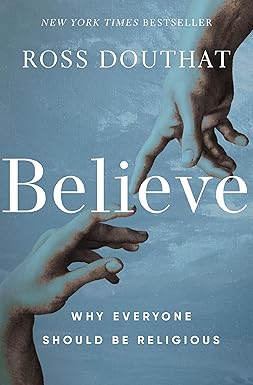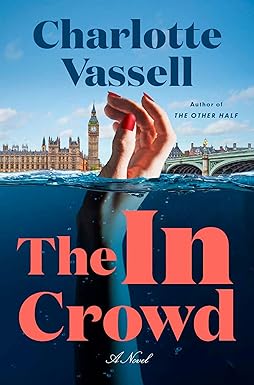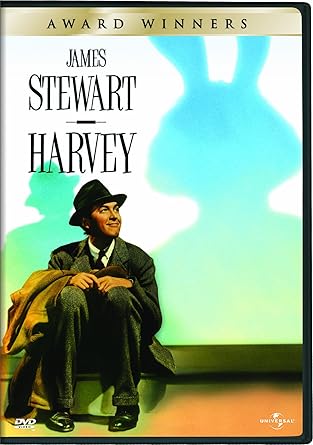In words, the NR editorialists find nothing to like either: Prescription Drug Price Controls Are Wrong Approach
Health and Human Services Secretary Robert F. Kennedy Jr., at a White House event to announce President Trump’s new prescription-drug-pricing executive order, said he had a “couple of kids who are Democrats, big Bernie Sanders fans,” who had “tears in their eyes” when they heard about the plan.
Under the order, the federal government would establish price targets on prescription drugs. Kennedy as secretary of HHS would set a “mechanism” by which Americans would directly purchase drugs from manufacturers at a “Most-Favored-Nation” price for prescription drugs. Effectively, this would force drug manufacturers to charge the U.S. the lowest price of any country.
Kennedy would be tasked with proposing new rules to impose the pricing and to “take other aggressive measures to significantly reduce the cost of prescription drugs to the American consumer and end anticompetitive practices.”
The problems are easy to foresee, and the editors describe them further.
Also of note:
-
It has a long tradition of existence. My local paper's occasional columnist, Douglas Rooks, doesn't adapt that classic Animal House line in his recent column about the USPS, but he comes pretty close, in Reversing the Postal Service’s ‘inevitable’ decline. I won't excerpt the whole thing, but I have a few comments:
One little-noticed departure was Louis DeJoy, the logistics expert hired during Trump’s first term to oversee the nation’s oldest public service, existing under the Articles of Confederation before the Constitution was ratified.
See? "A long tradition of existence."
DeJoy, like his recent predecessors, positioned the post office to compete with UPS and FexEx for the growing package business, while ignoring the only thing it’s constitutionally required to do: deliver the mail.
Ackshually, the Constitution merely grants Congress (Article I, Section 8, Clause 7) the power to "establish Post Offices". It's not a requirement, any more than granting "Letters of Marque and Reprisal" (a few clauses down) is a requirement.
But he went to greater extremes, relentlessly increasing the price of a First Class stamp while steadily decreasing service provided, a sure-fire formula for continued decline in mail volume leading to extinction unless halted and reversed.
Ackshually, first class postage has lately kept pace with overall inflation pretty well. See the graph here, which goes up to 2023.
But what is to be done?
First, create several public and consumer slots on the Postal Board of Governors, which generally rubber-stamps whatever the postmaster general wants. The postal unions that have seats seemed all too willing to indulge DeJoy’s shenanigans as long as he didn’t cut their pay.
More importantly, we have to reverse the trend to fewer and fewer places handling the mail. It’s as if government responded to the first PCs by mandating that everyone had to continue to use IBM mainframes that would get larger and larger as time goes by.
Decentralized processing – yes, bring back the Augusta and Lewiston [Maine] centers and add local sorting at every sizeable post office, and we’d drive down costs while increasing the speed of delivery. We have smartphones at our fingertips; surely we can phase out giant but ineffective sorting machines.
The decline in First Class volume has clearly become a self-fulfilling prophecy under DeJoy and likely his successor. Americans still want to mail things, and they should be able to expect they are delivered promptly.
Rooks provides no evidence for his dubious assertion that adding USPS sorting/routing centers (with no doubt unionized staffing) will "drive down costs". It's likely that will just cause an increase in USPS losses, which will need to be covered by… guess who?
Also not in evidence: any indication that "Americans still want to mail things." In fact, the decline in moving paper from one point to another is a global phenomenon.
Most importantly, Rooks never provides good reason for his advocacy other than good-old-days nostalgia.
-
What are the impeachers waiting for? Andrew C. McCarthy is disgusted by The $TRUMP Meme Coin Scheme (gifted link). And I dare say, unless you're a cheerleader for the team, you will be too:
On January 17, 2025, Donald Trump took to social media with an announcement that was as dumbfounding in its crassness as it was unprecedented in the history of American presidents-elect — to say nothing of presidents-elect less than 72 hours from being inaugurated to hold the most powerful political office in the world.
In the announcement, Trump urged the public, in the United States and across the world, to buy his new meme coin, $TRUMP. In his four ensuing months in office, the president has made a fortune on these sales. The exact amount is hard to quantify because, as we’ll see, meme coin values fluctuate wildly and Trump has partners in the venture. Still, Forbes has assessed that “it’s safe to assume the president walked away with at least $110 million after tax.” And that was in early April, before some more recent and significant revenue-raising developments.
Much of this haul has come from foreign sources. Just this week, while the president was spinning as a triumph his face-saving retreat from the trade war he’d started with China, an obscure tech company tied to China announced that it would buy a mind-blowing $300 million of Trump’s meme coin. And although investors in these digital tokens may make or lose money — mostly lose because, as we’ll see, meme coin marketing often operates like a pump-and-dump scheme — the marketing of $TRUMP is structured to earn the Trumps a transaction fee: i.e., they make money every time the tokens change hands. They appear to have cleared between $320 and $350 million in transaction fees so far.
"Sleazy" is too mild a word.
-
Why wasn't the 25th amendment used on Biden, anyway? Jonathan Turley listens so you don't have to. “For Posterity’s Sake”: Why the Biden-Hur Tapes is a Virtual Racketeering Indictment.
“For posterity’s sake.” Those words from President Joe Biden sum up the crushing impact of the leaked audiotapes from the interview between then-President Joe Biden and Special Counsel Robert Hur. Not only did they remove any serious doubt over Biden committing the federal crimes charged against President Donald Trump, but they also constituted what is akin to a political racketeering indictment against much of the Washington establishment.
The interview from Oct. 8-9, 2023, has long been sought by Congress, but was kept under wraps by the government even as Biden campaigned for a second term.
Many of us balked at Hur’s conclusion that no charges were appropriate despite the fact that the President removed classified material for decades, stored it in grossly negligent ways, and moved it around to unsecure locations, including his garage in Delaware.
Bottom line:
The real indictment that comes out of these tapes is a type of political racketeering enterprise by the Washington establishment. It took a total team effort from Democratic politicians to the White House staff to the media to hide the fact that the President of the United States was mentally diminished. If there were a political RICO crime, half of Washington would be frog-marched to the nearest federal courthouse.
Of course, none of this complicity in the cover-up is an actual crime. It is part of the Washington racket.
After all, this is Washington, where such duplicity results not in plea deals but book deals.
-
She's better looking than Bernie, anyway. One possible candidate for my CongressCritter in the midterm election is Hanna Trudo. The Daily Caller has (it's fair to say) a hit piece: Journalist-Turned-Would-Be-Democrat Congressional Candidate Exposed For Allegedly Hiding Luxurious Elite Lifestyle. Sample tweet and Hanna's deflecting response:
Sorry gentlemen, I like fashion AND Medicare for All! $15 minimum wage.
— Hanna Trudo (@HCTrudo) May 16, 2025
You can try and shame me into not running for #NH1 because you hate progressives, but not for being a fabulous woman
Live Free or Die #nhpolitics https://t.co/7NxPKLSEABI suppose if AOC can get elected, this could work too.
| Recently on the book blog: |
|
Recently on the movie blog: (Yes, I watched an actual movie! Second one this year!) |




![[5 stars]](/ps/images/50stars.gif)
![[IMDB Link]](https://ia.media-imdb.com/images/G/01/imdb/plugins/rating/images/imdb_46x22.png)
![[The Blogger]](/ps/images/barred.jpg)



